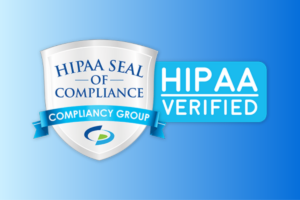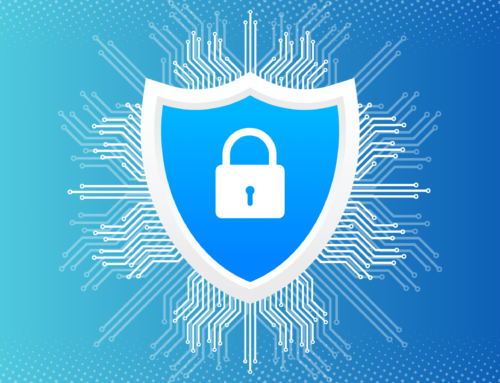Most security experts agree that it is no longer a question of if cybercriminals will target your practice, but when. Hacking, phishing attacks, and ransomware can effectively cripple your business and cost you resources and reputation. But the best tool to prevent small practice cybercrime can be as basic as having a truly effective HIPAA compliance strategy.
Reasons to Prevent Small Practice Cybercrime?
As the rate of cybercrimes explodes, the importance of preventing and mitigating the chances of being a victim becomes increasingly important. Patient records can be worth more than $250 each to cybercriminals, and new threats are developed on seemingly a daily basis.
For HIPAA compliance to help prevent small practice cybercrime, it must address the particulars of your practice. An off-the-shelf or “HIPAA-in-a-binder” solution is likely to leave you with a false sense of security at best. You may be just as exposed to cybercrime as before and likely not even truly HIPAA compliant.
What to Consider to Help Prevent Small Practice Cybercrime
HIPAA compliance begins with a HIPAA security risk assessment and the five audits that are associated with it. These audits and their analysis are designed to identify any vulnerabilities in how your practice uses, stores, accesses, and secures protected health information (PHI) of patients.
If you handle your IT and data security in-house, the responsible individuals must be aware of potential threats and constantly test and verify the security of your systems. They also must use HIPAA-compliant software and deploy it in a way that does not undermine your security or the status of your HIPAA compliance.
The video-calling application Zoom is a prime example. Zoom is only HIPAA-compliant if you choose the solution that offers a Business Associate Agreement for users. The most common “download and start” version used by so many people is not HIPAA compliant.
That is one reason many practices utilize Managed Service Providers or Managed Security Service Providers (MSSP) to provide the kind of informed security strategy needed to cope with the evolving threats from cybercriminals. In addition, these outsourced providers can assist with your HIPAA security risk assessment and create mitigation plans to address the gaps found.
More Ways HIPAA Compliance Helps Prevent Small Practice Cybercrime
Even with all of the threat actors in cyberspace, you must not ignore the threat inside your practice. Breaches and HIPAA violations often result from administrative failures such as poorly-designed (or ignored) policies and procedures or inadequate training.
Policies, procedures, and training must address the requirements of HIPAA compliance, but also the realities of potential threats from cybercriminals. Employees must know how to avoid pitfalls such as phishing attacks and pause to ask when situations violate established protocols.
Because the consequences of cyberattacks like ransomware and hacking are so damaging, there must also be consequences defined for employees’ failure to comply with the policies and procedures, and these consequences must be enforced.
A recent ransomware attack on a dental office cost the practice almost $20,000 a day for the three days their systems were out of service. This does not include the potential cost of damage to the practice’s reputation if those ransomed records containing PHI were sold for use in payment fraud or identity theft.
It may be prudent to consider cyber liability insurance. Hacking, ransomware, and other cybercrimes are specifically excluded from most business liability policies. In light of these growing threats, we are at or near a point where cyber liability insurance is as essential as malpractice insurance or business liability insurance. Speaking with an independent provider or choosing to form or join a risk purchasing group will give you the facts to make the best decision for your practice.
Final thoughts to Prevent Small Practice Cybercrime
HIPAA compliance is not designed to replace effective data protection and security practices. Instead, HIPAA compliance should guide your decision-making so that you make the best choices to fulfill the requirements of the HIPAA Security Rule and the HIPAA Privacy Rule.
The vendors you choose to help you achieve the best security plan for your practice must also be HIPAA compliant, and they must be willing to sign a Business Associate Agreement prior to providing any service for you. Why would a practice that seeks to be HIPAA compliant ever entrust any patient PHI to an organization that does not share its commitment to protecting patient data and fulfilling the requirements of the HIPAA regulations?
Compliancy Group’s solution is a one-two punch that fulfills the requirements of the thousands of pages of HIPAA regulations in a way that provides maximum compliance with minimal stress on your timetable.
First, our web-based compliance application, “The Guard,” keeps a record of the tasks you need to complete, stores proof that they are completed, and alerts you if anything needs to be updated.
Second, we pair you with your own Compliance Coach that personally guides you through using “The Guard” and supports you until you achieve your Seal of Compliance. That combination gives you an industry-leading compliance solution like no other. After more than 16 years in business, Compliancy Group has never had a customer fail a HIPAA audit or be fined for violating HIPAA Regulations.
As an added bonus, Compliancy Group maintains a list of trusted Business Associates who meet our exacting standards of HIPAA compliance and shares our passion for delivering service excellence to our clients.









